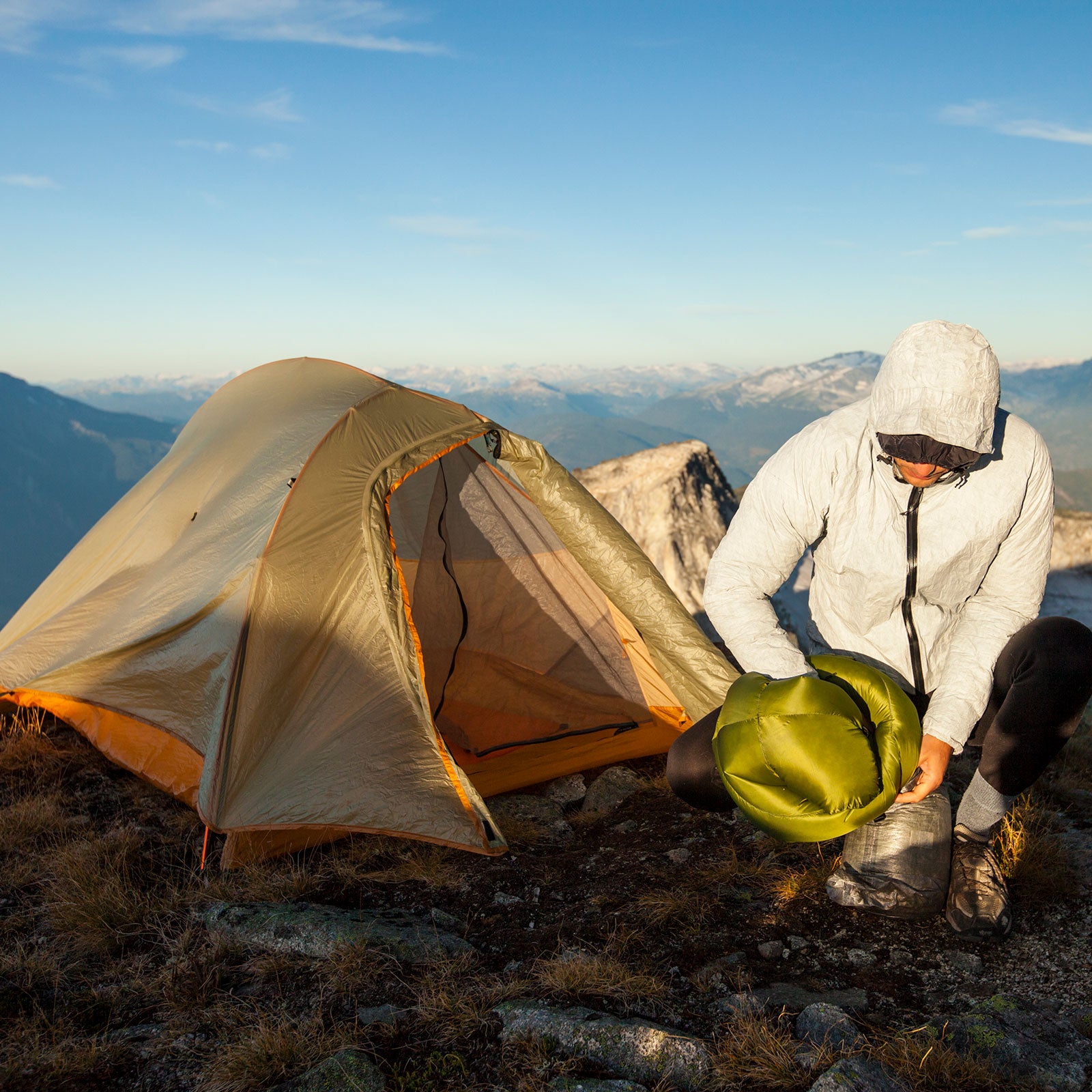There was a period in my life when I used a series of disposable plastic baggies to organize all of my things when I traveled. Socks went into gallon Ziplocs, cords into sandwich bags, extra batteries into snack bags—it was a simple system. The only problem? Unless you’re packing a turkey sandwich, disposable bags are too flimsy and fragile to store things reliably. And they’re bad for the planet. Fortunately, there’s a stuffsack for every situation, whether I’m trying to compress a load, separate my socks from my undies, or keep my chargers and cords dry. Here are my favorites.
Osprey StraightJacket Compression Sack ($25 and Up)
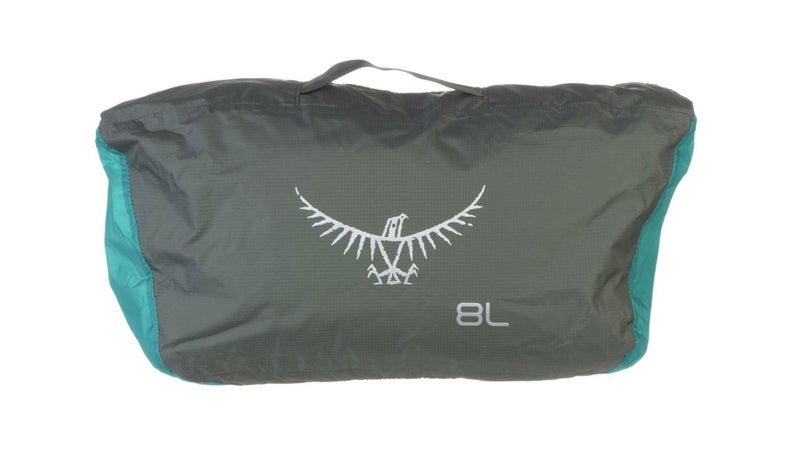
The StraightJacket is not your standard drawstring stuffsack: it has a long zipper for access, with three additional straps that you buckle and tighten to compress the load. When flattened, it has a rectangular shape, which helps remove dead space if you’re packing it in a square roller bag or at the bottom of your multi-day backpack. Choose from three sizes—8, 12, or 20 liters—all of which are made from a lightweight 40-denier nylon ripstop. It’s finished with DWR to help protect your gear against moisture. I like the largest size for clothes, and I use the smallest as an upgraded stuffsack for my sleeping bag; being able to crush down the bag inside the StraightJacket helps save a couple inches of packing space.
SealLine Bulkhead Compression Dry Bag ($35 and Up)
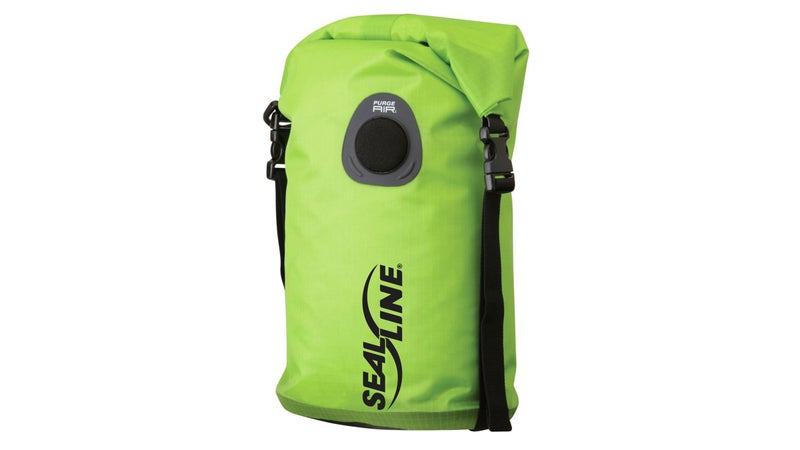
The Bulkhead is built to eliminate dead space: it has a compression system and foam valve that purges air from the bag. Roll the Bulkhead shut, clip the straps, and squeeze the bag to release air from the valve, tightening the straps as you go. These features come in handy when you’re traveling in boats with limited square footage. While roll-top drybags aren’t made to be fully submersible, the Bulkhead will keep your gear dry as long as you keep your boat upright. I thought the foam air valve could be a potential leak point, but I held a hose over it for several minutes, and afterward everything inside was bone-dry. I also like that the closure system has built-in instructions, which helps eliminate some of the user error that’s common with roll-top drybags. It comes in four sizes: 5 liters, 10 liters, 20 liters, and 30 liters.
Hyperlite Mountain Gear Stuff Sack Pillow ($40)
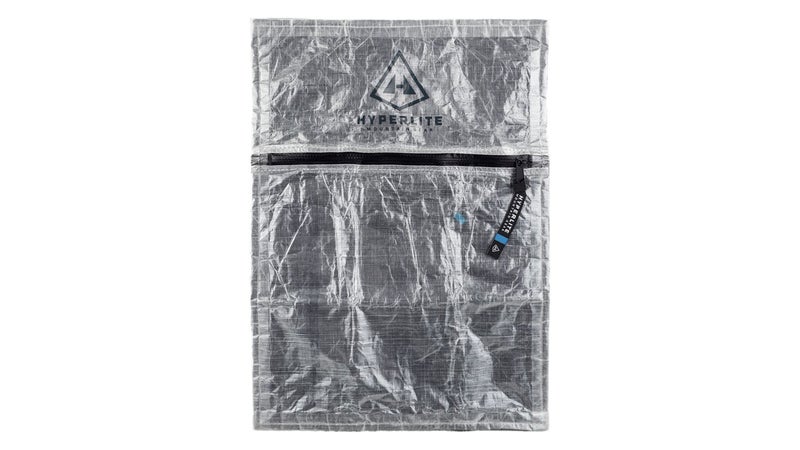
In true ultralight fashion, Hyperlite’s stuffsack pulls double duty, working as a pillow when it’s not keeping your clothes organized. It’s made with lightweight Dyneema, taped seams, and a YKK zipper. (One interior side of the bag is lined with Polartec fleece.) The result is a waterproof package that weighs just 1.69 ounces. Flip the sack inside out, fill it with a jacket, and zip it up for a soft pillow when you’re in the backcountry. If you’re like me, the stuffsack will come in handy if the pillow is the first thing you eliminate when you’re shaving weight from your pack. Pro tip: don’t put dirty clothes in this sack, as that trail musk will transfer onto the fleece lining. Available in two sizes: small (10 by 14 inches) or large (12 by 17 inches).
Watershed Ocoee ($118 and Up)
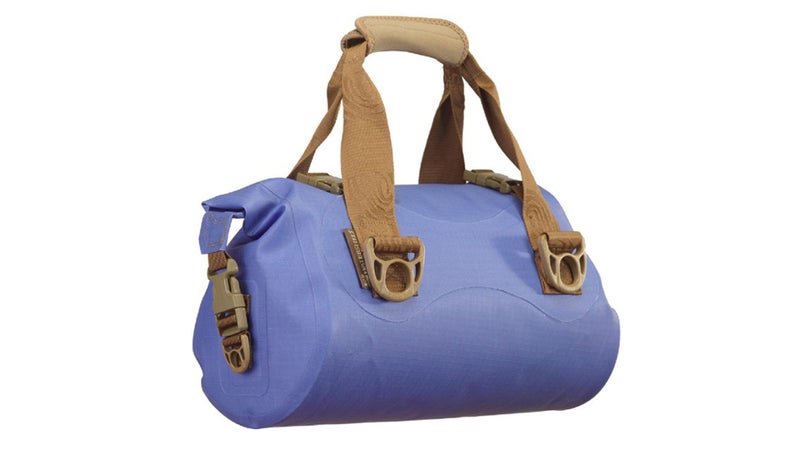
The Ocoee has been my most trusted drybag on river trips for years. It’s not the lightest (1.7 pounds) or the easiest to use, but this fully submersible bag will absolutely keep your gear dry, even if you get dunked rapid after rapid. The key is the closure, which creates an airtight seal that hasn’t yet failed me under pressure. You can test it yourself by zipping the bag shut, then standing on top of it. It’s built from 420-denier Cordura with leakproof RF-welded seams and multiple D-rings for lashing it down. You get just over ten liters of space after the Ocoee is rolled tight, which is enough for an extra layer, small towel, camera, wallet, and phone. Watershed bags aren’t easy to open; you have to grip the loops on the seal with both hands and squeeze both ends together to form an S before you can pop the seam open. But that extra work only adds to the peace of mind that the Ocoee brings to the water.
Outdoor Research Zip Sack ($25 and Up)
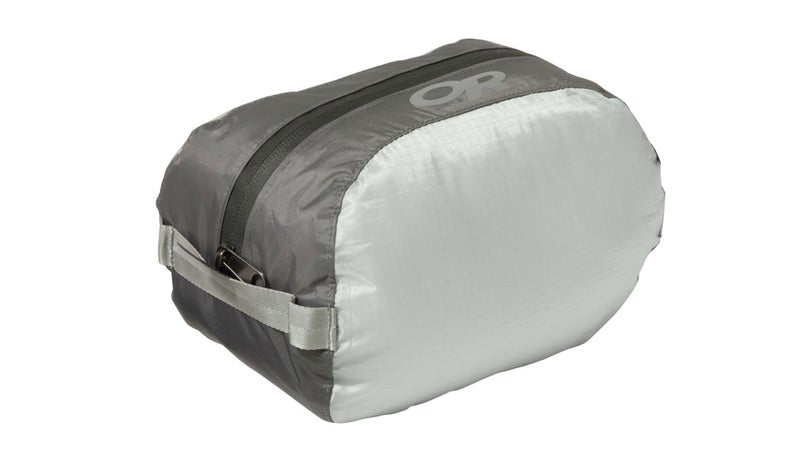
Depending on the trip you’re taking, the Zip Sack can act as a Dopp kit, a media organizer, a first-aid kit, or a way to organize your beanies, gloves, and extra socks. I like the full-zipper access, which allows you to find what you’re looking for without dumping the bag’s contents. Meanwhile, the 70-denier nylon body with DWR coating adds a layer of water resistance if you’re packing sensitive gear, like electronics. It comes in two sizes: small (eight by five by four inches) and medium (ten by six by five inches).
Sea to Summit eVac Dry Sack ($28 and Up)
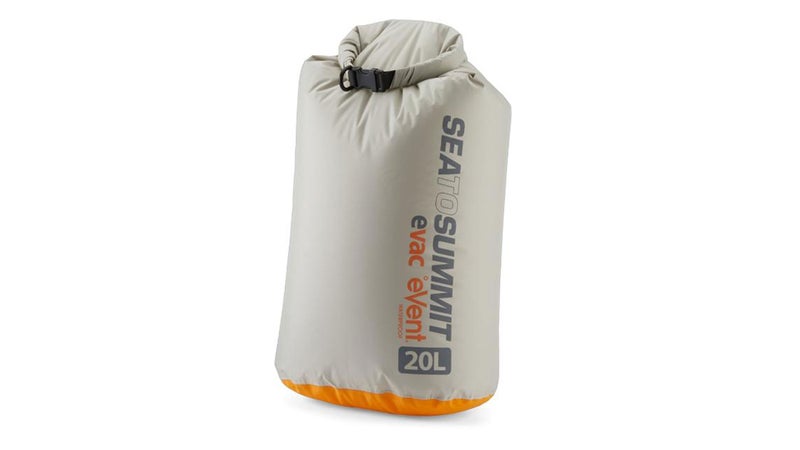
For the eVac, Sea to Summit combined a 70-denier nylon body with a bottom panel made from the waterproof and breathable eVent fabric. That panel is key, because it allows air to release from the stuffsack when you apply pressure with the roll top closed. The eVac isn’t designed to be fully submersible (I wouldn’t use this on a river trip), but it’s a good option to protect water-sensitive items, like puffy jackets or sleeping bags, when you’re backpacking and might experience the occasional rain shower.


